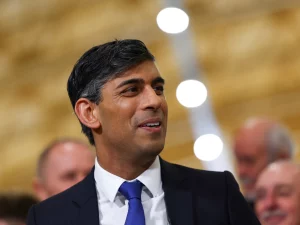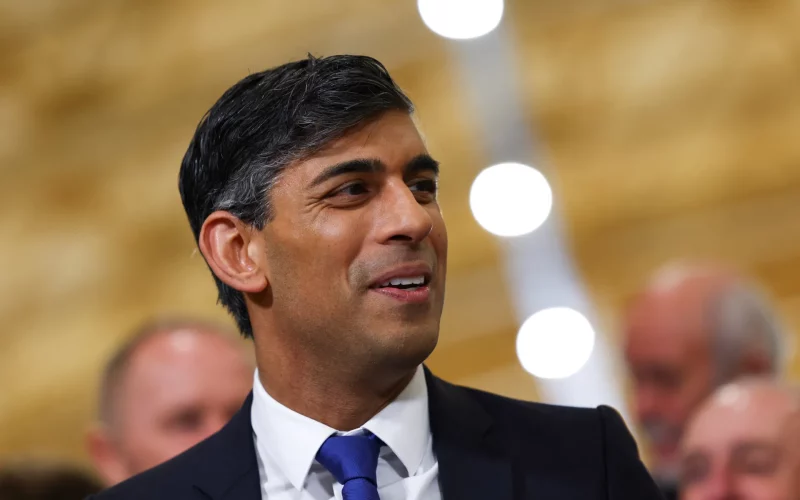The first 100 days of a new government are crucial in setting the tone for its entire term. This period often involves a whirlwind of activity as the incoming administration begins to implement its key policies and establish its priorities. For the Labour Party, which has been a significant player in the UK’s political landscape, the first 100 days would be a critical period to address pressing issues, initiate policy reforms, and consolidate its position as a governing party.
1. Policy Implementation and Legislative Agenda

1.1 Health and Social Care
A cornerstone of Labour’s platform has been its commitment to the National Health Service (NHS). In the first 100 days, Labour would likely focus on addressing immediate pressures within the NHS. This could involve increasing funding, reducing waiting times, and implementing measures to tackle staffing shortages. The party’s pledge to improve social care services would also be a priority, with potential reforms aimed at providing better support for the elderly and vulnerable populations.
1.2 Education
Education is another area where Labour is expected to make significant moves. Key initiatives might include increasing funding for schools, reversing austerity cuts, and implementing policies to reduce class sizes. Labour’s proposed expansion of free school meals and the introduction of a new curriculum emphasizing mental health and well-being could be part of the initial agenda.
1.3 Climate Change and Environment
Labour’s commitment to tackling climate change would likely be a prominent feature of their first 100 days. This could involve accelerating efforts to achieve net-zero carbon emissions, investing in renewable energy projects, and implementing stricter environmental regulations. Labour might also introduce policies aimed at reducing carbon footprints and enhancing sustainability across various sectors.
1.4 Economy and Employment
Labour’s economic policies would be central to their early agenda. The party’s plan to address income inequality might involve increasing the minimum wage, reforming taxation to ensure higher earners contribute more, and investing in job creation schemes. Measures to support small businesses and boost regional economies could also be on the table.
2. Establishing Government Structures
2.1 Cabinet Appointments and Staff
A crucial aspect of the first 100 days would be the selection of key cabinet members and senior staff. Labour would need to ensure that experienced and capable individuals are appointed to critical roles to facilitate effective governance. The composition of the cabinet and the strategic appointments of senior advisors and civil servants would play a significant role in shaping the administration’s ability to implement its policies.
2.2 Policy Reviews and Advisory Bodies
Labour would likely initiate a review of existing policies and government structures to identify areas requiring reform. Setting up advisory bodies and working groups to address specific issues, such as healthcare or education reform, would be an essential step in developing and refining their policy proposals.
3. Public Communication and Engagement
3.1 Addressing Public Expectations
Effective communication with the public would be vital for Labour during the initial phase of government. The party would need to manage public expectations by clearly outlining their priorities and providing updates on their progress. Addressing concerns and demonstrating responsiveness would help build trust and support among the electorate.
3.2 Media and Public Relations Strategy
Labour would need to implement a robust media and public relations strategy to ensure positive coverage and public engagement. This could involve regular press briefings, strategic use of social media, and public appearances by key ministers to communicate their vision and achievements.
4. Legislative Challenges and Parliamentary Relations
4.1 Navigating Parliament
Labour’s ability to pass legislation and implement its policies would depend on its parliamentary majority and the support of other parties. The first 100 days would likely involve navigating the parliamentary process to secure approval for key bills and amendments. Building alliances and managing relationships with other political parties and stakeholders would be crucial for achieving legislative goals.
4.2 Opposition and Scrutiny
The opposition parties would play a significant role in scrutinizing Labour’s policies and decisions. Labour would need to address critiques and challenges from the opposition while maintaining a focus on its legislative agenda. Effective handling of opposition scrutiny would be important for maintaining political stability and advancing the government’s objectives.
Analysis Table
| Policy Area | Expected Actions | Potential Challenges |
|---|---|---|
| Health and Social Care | Increase NHS funding, address staffing shortages, reform social care | Budget constraints, resistance from entrenched interests |
| Education | Increase school funding, reduce class sizes, expand free school meals | Implementation logistics, balancing regional needs |
| Climate Change | Accelerate net-zero targets, invest in renewables, stricter regulations | Industry resistance, balancing economic and environmental goals |
| Economy and Employment | Raise minimum wage, reform taxation, job creation schemes | Economic fluctuations, opposition from business sectors |
| Cabinet Appointments | Select experienced ministers, appoint senior advisors | Managing internal party dynamics, ensuring effective governance |
| Policy Reviews | Conduct reviews of existing policies, set up advisory bodies | Resistance to change, bureaucratic delays |
Comparative Table: Labour’s First 100 Days vs. Conservative’s First 100 Days
| Aspect | Labour’s Approach | Conservative’s Approach |
|---|---|---|
| Health and Social Care | Increased NHS funding, reform social care | Emphasis on efficiency, budget cuts, introduction of new policies |
| Education | Increased funding, reduced class sizes, expanded free school meals | Focus on school autonomy, performance-based funding |
| Climate Change | Aggressive carbon reduction targets, investment in renewable energy | Market-driven solutions, incremental changes, emphasis on technology |
| Economy and Employment | Increase minimum wage, reform taxation, job creation | Tax cuts, deregulation, focus on private sector-led job creation |
| Cabinet Appointments | Focus on experienced, diverse cabinet members | Traditional appointments, focus on loyalty and party alignment |
| Policy Reviews | Comprehensive reviews, establishment of new advisory bodies | Incremental reviews, focus on existing policies and frameworks |
Conclusion
Labour’s first 100 days in government would be a defining period for setting the agenda and demonstrating their commitment to key policy areas. With a focus on health, education, climate change, and economic reform, Labour would need to navigate complex challenges while establishing a stable and effective administration. By addressing immediate priorities, managing public expectations, and engaging effectively with Parliament, Labour would aim to lay a solid foundation for their term in office and build support for their broader vision for the country.












